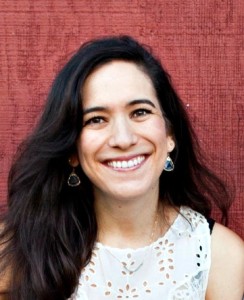- Calls to this hotline are currently being directed to Within Health or Eating Disorder Solutions
- Representatives are standing by 24/7 to help answer your questions
- All calls are confidential and HIPAA compliant
- There is no obligation or cost to call
- Eating Disorder Hope does not receive any commissions or fees dependent upon which provider you select
- Additional treatment providers are located on our directory or samhsa.gov
Dietetic Majors and Eating Disorders
College offers a unique time for students to explore and find their niche and areas of passion. From art to science to business and philosophy and everything in between, there are countless academic areas that can be pursued and studied in the college realm. One such degree that is gaining popularity is a Dietetic Major under the umbrella of Family and Consumer Science and in the field of Dietetics.
Becoming a Dietetic Major

The process of becoming a dietitian is one that involves both undergraduate coursework and the successful completion of an internship. One a student has completed their degree and coursework in dietetics, they will then become eligible for fieldwork in an internship, which is the last step that is needed for eligibility to take the board exam for registered dietitians.
Undergraduate coursework and fieldwork in dietetics may involve learning how to create meal plans, kitchen lab work, culinary arts, food service management, and food and nutrition sciences. Students in the dietetics field learn a variety of aspects within the study of food and nutrition.
Dietetics and Food Habits

While eating disorders develop as the result of many complex factors, there are many hypotheses as to why eating disorders among dietetic students may be more prevalent. For one, students who may already be hyper focused on food and nutrition may gravitate towards majoring in a discipline that revolves around this very thing. Some students with existing eating disorders or abnormally obsessive relationships around food may chose to major in an area that allows the study and focus of these subjects. On the other side of things, students who are continually submersed in an area of study of nutrition and food may become more inclinced to obsess about things of this nature. For a student who is predisposed to having an eating disorder, being within a major that is continually focusing on eating and food may contribute as an environmental trigger.
Find Help on Campus

Awareness is Key

The field of dietetics is certainly a rewarding discipline of study that leads to a fulfilling career. For students who are majoring in dietetics, having an understanding about the potential increased risk for developing an eating disorder is helpful for awareness and treatment methods.
References:
- Reinstein N., et al. Prevalence of eating disorders among dietetics students: does nutrition education make a difference? J Am Diet Assoc. 1992 Aug; 92(8): 949-53.
- W.V. Strauss, et al. A Comparison of Dietetics Career Choice Motivators and Prevalence of Eating Disorders in a College Female Population. Journal of Academy of Nutrition and Dietetis. September 1999.

Crystal is a Masters-level Registered Dietitian Nutritionist (RDN) with a specialty focus in eating disorders, maternal/child health and wellness, and intuitive eating. Combining clinical experience with a love of social media and writing,
As a Certified Intuitive Eating Counselor, Crystal has dedicated her career to helping others establish a healthy relationship with food and body through her nutrition private practice.
The opinions and views of our guest contributors are shared to provide a broad perspective of eating disorders. These are not necessarily the views of Eating Disorder Hope, but an effort to offer discussion of various issues by different concerned individuals.
We at Eating Disorder Hope understand that eating disorders result from a combination of environmental and genetic factors. If you or a loved one are suffering from an eating disorder, please know that there is hope for you, and seek immediate professional help.
Reviewed And Updated By: Jacquelyn Ekern, MS, LPC on June 18, 2019.
Published August 28, 2015, on EatingDisorderHope.com
